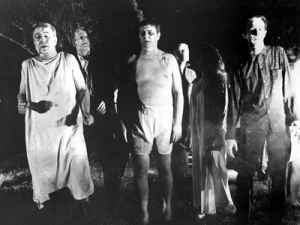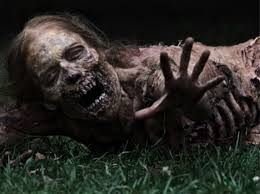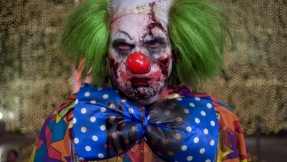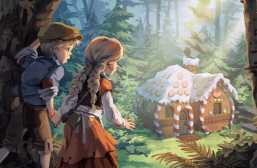Zombies: The Undying Genre
As humans, we are so interested in each other that everything we do revolves around other humans, even if they are dead humans. Zombies have become a monstrous cultural craze since the turn of the century, but the first walkers rose from their graves in George A. Romero’s Night of the Living Dead released in 1968. Night of the Living Dead is the classic depiction of zombies. Walking as a slow-moving and cumbersome horde of undead they seem as a force whose single drive is consuming human entrails.

If you know anything of modern zombies, you would know that this conceptualization of zombies hasn’t evolved since the genesis of the idea, but even more interesting is that the successful qualities haven’t changed either.
It would be false to say that there has been a lack of evolution in the genre, but in many ways this evolution has to do with the zombies themselves. There have been several attempts at making zombie movies with little substance and a lot of gore and flesh-eating. Each of these shallow rehashes falls shorter than the next. Somehow, in other works, zombie media ends up succeeding after these poor attempts. There is a reason for that. The movies I Am Legend, and 28 Days Later feature zombies that are faster and some seem possibly sentient. But that’s not all these films have going for them. So why are some zombie movies so terrible?
The Bad and the Good
Unsuccessful zombie media obviously do certain things that successful zombie media doesn’t. A generally large problem, as in many creations today, is substandard quality in acting, makeup, and scene setting. Attention to these details are especially important in zombie media. The zombies must evoke both disgust and sympathy in the audience. Isn’t that difficult to fathom? It is difficult to imagine, but you know it when you see it. An amazing example of such an elicited emotion are found in the pilot of The Walking Dead TV show. One of the first zombies the main character encounters is depicted below.

This zombie is not presented as a formidable enemy that the main character – Rick – must dispatch. It looks feeble and pitiful: representing what the world has become. This perfectly represented the priorities of the show and led it to find its success in the interactions between people in the desolate wasteland of post-apocalyptic humanity.
Besides movies and TV shows, zombies have infected most other types of media. Many people don’t know that The Walking Dead TV show is actually a very successful adaptation of a comic book under the same name. The comic book saw great success and so it was brought to television. The Walking Dead’s setting and tone were so addictive to audiences that it has also been adapted into three video games based on the series, one of which won over 90 Game of the Year awards.
World War Z: An Oral History of the Zombie War, by Max Brooks, is a zombie based novel told through diary entries. This book, dark and serious in tone, won an award for its audiobook version and was later adapted into a movie. These examples show that you can capture the threatening and dramatic atmosphere of a zombie apocalypse in genres other than just through film and television.
Successful zombie media is more realistic than most other zombie media because it derives success through complete immersion. The dead coming alive to eat the living is hardly realistic, but the world that comes from this is realistic. The zombies are no more of a villain in these contexts than snakes would be if you were crossing a desert. Zombies are not characters, they are a setting. They offer a world in which humans will act differently. The setting of a post-apocalyptic world scoured with the undead lets us view how our society would act if all stability was gone. If zombies were real at this hour of this day, how long would it take us to lose our humanity? Zombies are important, but they should not be the focus of the genre. They provide the canvas for every interaction to draw itself out. Zombies act as the catalyst for us to measure where we are as a society. They make us ask ourselves what is more important: living or surviving.
Even the very first zombie movie emitted that same conceptual complexity. Night of the Living Dead did not rely on the new awful villains it created for its success. There was a great deal of personal conflict involved. Young love destroyed, families ruined, and the hero of the movie unknowingly and carelessly dispatched by humans. Romero provided you with so much hope for each character, and then slowly took it all away. At the end of the movie you are left with nothing. No hope, no love, and no family to comfort you. Truly good zombie media lets the zombies be the Hollywood fantasy, and this shows the world as realistically tragic as it would be under the circumstances.
Zombie Comedy vs. Zombie Tragedy
An exception to this is the sub-genre of zombie comedy. While the production quality remains consistent, zombie comedies stray away from most good zombie media by adopting a humorous mood. Traditional zombie media should be called zombie tragedy. This is zombie tragedy because the focus of most zombie media is the failures of humans and the futile struggle to survive. Zombie comedies do have this throughout their media, but it is not the forefront of the story. Even though zombie comedies don’t take such a serious approach to their storytelling, does this make zombie comedies less quality than zombie tragedies?

No, it does not. Two exceptional movies done as zombie comedy are Shaun of the Dead and Zombieland. An example of zombie humor as societal criticism is in the beginning of Shaun of the Dead. The movie begins with the main character, played by Simon Pegg, going about his daily life and routine with the world pre-zombie outbreak. The next day he gets up and goes through his routine once again, except this time everyone along his way is undead and he doesn’t even notice. It makes you laugh and ask if we just go about our daily lives as conscious as if we were zombies. Zombie comedies focus on the same things as zombie tragedies, but with a smile on their face, and they can do it well.
Conclusion
Like I’ve said: good zombie media isn’t about zombies eating people. The ubiquitous feature in successful is exceptional focus on the setting provided to examine human nature, human interaction, and the current state of society. The looming threat provides a common desperation in all those aware of it. This is something only a post-apocalyptic scenario can give. It puts our universal fear of death, the unraveling of our constructed society, and what parts of our humanity we must relinquish to survive in a world gone mad. The best of these should make the consumer feel directly involved in the story. They should make the consumer ask, “What would I do if this happened to me?” It is only during these moments when our society can realize how far we have progressed as a species and how far we have left to go.
The zombie genre has accidentally stumbled upon the perfect balance of realism and fantasy in their atmosphere. This makes a world easy enough to imagine ourselves in for hours at a time, while allowing us to escape it as easily as we enter. It mixes equal properties of fear and desire, and represents itself in completely new atmospheres, not due to physical location, but the intense relations between the myriads different people. These personalities whose interactions display the struggle of maintaining the balance between living and surviving in a post-apocalyptic adventure are what keep the genre alive and thriving. People are what keep zombies, and their genre undying.
What do you think? Leave a comment.











The Walking Dead certainly is a reason why Zombie themed content still gain a mass audience. The Walking Dead is able to produce quality drama with intense character arches, which makes the show so popular. Doubt it would be the case if the emphasis was just all gore.
I like how you described a good zombie character as having both “disgust and sympathy.” It seems like movies only focus on the disgust part, as a way for a cheep shock value.
First of all this way very informative, well done. I agree the character struggle is what makes a zombie movie good. On top of the movies you mention Wyrmwood is coming out and that looks like it could live up to this kind of zombie movie.
zombies or vampires – who rocks the genre chart?
Definitely zombies.
Best Zombie movie line:
“The best thing about [Zombieland]? No Facebook updates.”
Zombies are mainstream these days. I’ve seen 5 year old kids playing at zombies. Not mine of course.
Enjoyed this a lot – great idea that zombies aren’t the antagonist but the environment, forcing humans to work in a different way. Very interesting!
Great article! I love the idea of the battle between disgust and sympathy. The monster who was once a regular person is in some ways a lot more disturbing than “normal” monsters.
So the most boring of all the horror classic monsters seem to be the most popular…says plenty about the times we live in, really. The most closely and obsessively observed people on the planet are vacuous celebrity millionares, brainless zombies followed by the hordes of even dumber fans…
I am a massive nerd. Love Zombie movies.
Could someone please educate me on what does or doesn’t constitute a proper zombie origin?
Do you mean the disease or reason for zombification?
If they are mindless and bite humans who in turn become them, then they are Zombies, end of. It’s not relevant if it’s a disease, virus, magic, voodoo or a meteorite that started it.
The ultimate class-war capitalist critique zombie film must be Romero’s Land of the Dead starring Dennis Hopper.
Zombie films are a bit marmite. Personally I can’t get enough. Unlike vampires et al zombies can’t be sexified. It’s about our own mortality. Ultimately we can never win, but it’s fun to watch us try…
Since reading Collapse by Jared Diamond, I’ve been convinced that the zombie myth is actually a racial memory or premonition of the death of society. The picture he painted of the end of Mayan society as revealed by archaeological finds was one of marauding gangs of starving people breaking into houses and consuming their inhabitants. My theory is that as we do as they did, consuming our resources at an increasing rate, a part of us is preparing for the consequences.
Just my cheery tuppence.
Cool article 🙂 The zombie genre is always a favorite! And my two personal favorites happen to be Zombieland and Shaun of the Dead!
There are many Zombie books that explore all sorts of different aspects of the socio political meaning of having 99% of the population as the Undead. They are a brilliant literary device and allegory for modern times.
French zombies : “Les revenants” by Robin Campillo. Just to say.
Very informative. I entirely enjoyed reading this piece.
Juan of the Dead is fab. Really good fun and made with a lot of enthusiasm.
I feel as though zombies have become too over saturated, much like vampires. I’m waiting for werewolves to be in everything.
Personally I could never see the threat zombies posed – certainly against a well trained sniper with a few hundred thousand rounds, or even just a bulldozer, or anybody with the sense to lock their door.
I always felt the threat of zombies was the sudden take over. Like with ‘World War Z’ – A family starts their typically day, drives to work and school, and, boom, zombie outbreak with no warning. People panic and chaos ensues. I do agree, though, that once the threat was accessed, we would have the resources to easily do away with them.
I’m a massive zombie film fan. I’ve watched loads.
I’m a huge zombie fan, but there are some points where the ideal of a zombie movie, show, etc, becomes annoyingly repetitive. While each show / movie is trying to portray zombies in its own way, I feel that zombies haven’t truthfully evolved. Zombies are always going to be creatures that try to eat other humans / creatures. Brains of course being the main meal. Just recently there was a zombie film released called Warm Bodies. This take on zombies is magnificently genius because it was a new take on the classical drawling of ‘I want brains.’ The main concept is that a zombie has feelings for this girl. Since when do zombies have feelings? Aren’t they suppose to be mindless, petrified, horde slamming, brain eating creatures of the human condition? Warm Bodies defied the classical concept of a zombie, and I feel that takes a lot of guts (pun intended). This concept is, of course, a literary driven ideal of the self versus self situation. Fighting one’s own nature in order to find some kind of enlightenment. Excellent use of zombie warfare.
What is my point? Zombie movies / shows need to have more than just the creature to them. The plot needs to be character driven rather than bloody and explosive effects. Sure there is a market for the latter, but honestly you might as well make another Expendables film with zombies if that were the case.
Warm Bodies, I think, is a severely underrated film. As both a parody and creative reworking of the genre, it transcends it humble and well-worn framework with unexpected depth.
Excellent article. Humorous zombie section could be explored more by saying more regarding Zombieland, as it was one of the best zombie apocalypse films.
No doubt! I recognise zombies as a classic horror movie genre. I really liked the direction that Resident Evil took zombies, as well as The Walking Dead, okay, yes I admit I am from Georgia, so I am biased.